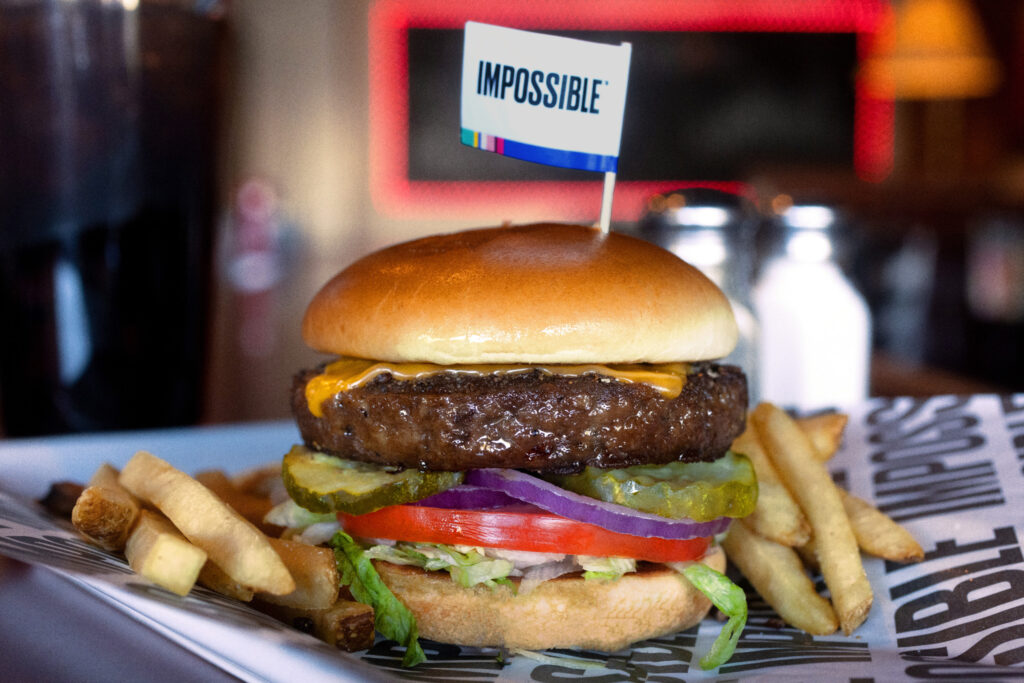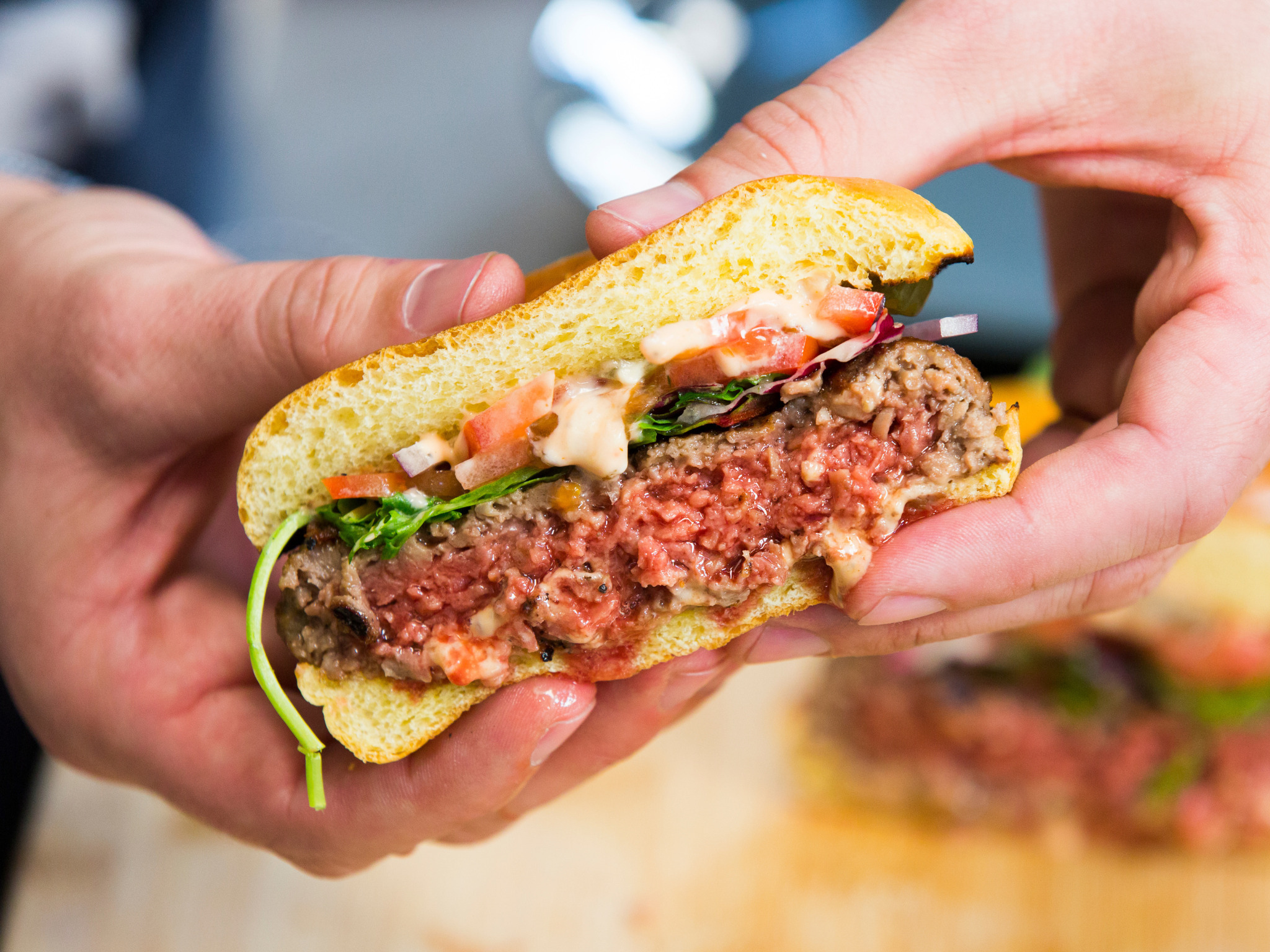Impossible Foods Closer to EU Approval After Vegan Burger Clears Safety Assessment
4 Mins Read
The Impossible Burger is now a step closer to appearing on EU shelves after the company’s heme ingredient was ruled safe for consumption by the bloc’s regulatory body.
Californian plant-based meat giant Impossible Foods has passed the first part of the lengthy, rigorous regulatory process to sell its plant-based beef burger in the European Union.
The European Food Safety Authority (EFSA) has found that the use of soy leghemoglobin from genetically modified Komagataella phaffii (formerly named Pichia pastoris), a strain of yeast used by several alternative protein companies, does not raise a safety concern for its proposed use and levels of inclusion.
Impossible Foods – which confirmed the development – uses soy leghemoglobin as an additive in its plant-based beef range, which gives the products the distinct colour and flavour associated with conventional beef. The company has always marketed the precision-fermented ingredient as the element that makes the Impossible Burger “bleed”.
The EFSA’s opinion is provisional, subject to an ongoing safety assessment by a panel on the genetic modification of the production strain.
Heme has kept Impossible Foods away from the EU
During its R&D days, Impossible Foods was extracting heme from the root nodules of soybean plants, before pivoting to fermentation to enable scale-up and more planet-friendly production.
It starts by inserting the DNA from soy plants into genetically engineered yeast, which is then fermented in a similar way to how Belgian beer is made. It then isolates the soy leghemoglobin (which contains heme) from the yeast and adds it to its beef products.
The yeast strain, K. phaffii, is the same one used by precision fermentation companies The Every Co (which makes animal-free egg proteins) and Remilk (which produces recombinant dairy proteins).
The Impossible Burger, Beef, Beef Lite and Hot Dog all use the ingredient for a hue and flavour that more closely replicate conventional beef. Food safety regulators in the US, Canada, Australia and New Zealand, and Singapore have all approved the use of soy leghemoglobin for human consumption, paving the way for Impossible Foods to launch these products.
But so far, the Impossible Burger has not made it to the EU, whose famously stringent regulatory process has held back a number of alternative protein players. However, recent advancements have been encouraging. Just last week, French cultivated foie gras producer Gourmey became the first to apply for approval in the bloc.
This came a month after Impossible Foods cleared its first obstacle too, as part of an assessment that has been ongoing since 2019.

EU food safety regulator says heme is safe, but GMO approval needed
In a scientific opinion published in late June, the EFSA Panel on Food Additive and Flavourings noted that the proposed food additive, called LegH Prep, is a liquid preparation containing the soy leghemoglobin and added ingredients and intended to be used as a colouring in meat analogues.
In its submission to the EFSA food additive panel, Impossible Foods said soy leghemoglobin contains a haem B group similar to animal myoglobins and other plant haemoglobins. In conventional meat, this group is responsible for the red colour of uncooked products.
When a burger is cooked, it causes the oxidation of iron, which means oxygen is released and results in a loss of the red colour. And when the soy leghemoglobin is heated above 62°C or exposed to low pH environments (like the human stomach), it denatures. Combined with the release of the haem B group, this plays a major role in generating the flavours and aromas associated with cooked animal-derived meat.

The proposed maximum level of heme in meat analogues is 0.8%, which is similar to the amount of myoglobin in beef (0.8% to 1.8%). The exposure to iron is also below the “safe levels of intake” established by the EFSA’s Panel on Nutrition, Novel Foods and Food Allergens.
The filing stated that no genotoxicity concerns or adverse effects had been identified in toxicology studies, and the EFSA did not feel the need to set an acceptable daily intake.
The next step in the Impossible Burger’s journey to the EU is the safety assessment by the Panel on Genetically Modified Organisms. This process has been under a Clock Stop since December 2021, meaning the company needs to provide additional information for the EFSA to complete its evaluation. Currently, the deadline for the GMO risk assessment is set in June 2025.



